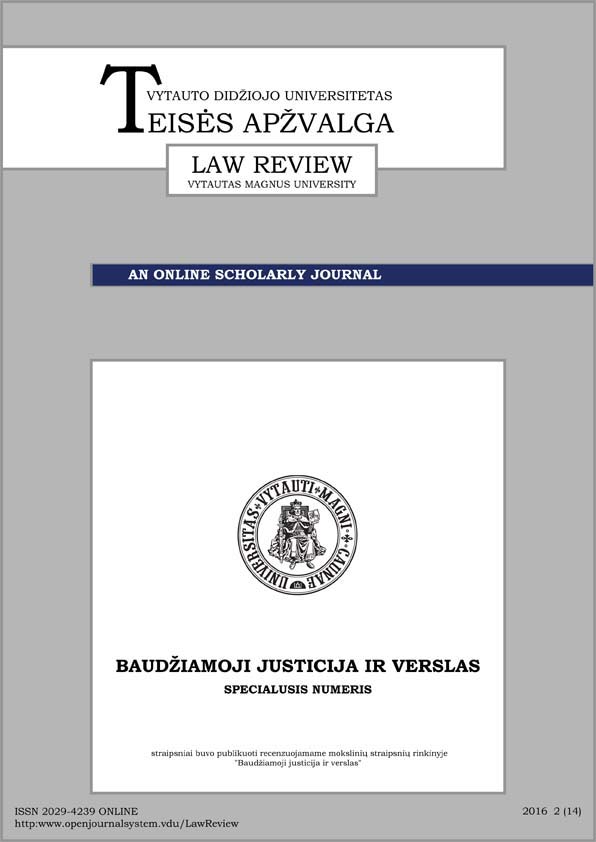Vertinamieji požymiai nusikalstamų veikų ekonomikai ir verslo tvarkai sudėtyse
Evaluative Features of Corpora Delicti of the Criminal Acts Against the Economy and Business Order
Author(s): Paulius VeršekysSubject(s): Law, Constitution, Jurisprudence, Criminal Law
Published by: Vytauto Didžiojo Universitetas
Keywords: Criminal law; Evaluative features; Criminal acts against economy and business order; Qualification
Summary/Abstract: Straipsnyje atskleidžiama nusikalstamų veikų ekonomikai ir verslo tvarkai rūšinės sudėties samprata ir taikymo tendencijos, identifikuojami Baudžiamojo kodekso XXXI skyriaus vertinamieji požymiai, analizuojamas jų turinys ir probleminiai inkriminavimo aspektai. The major effect in the field of substantial criminal law has the principle nullum crimen sine lege, which in general means that “there can be no crime committed without a criminal law” (translated from the Latin). Owing to nullum crimen sine lege principle, criminal code is the primary source of criminal law, and the body of a criminal act (in Latin – corpus delicti) is one of the formal grounds of criminal liability. It follows that formality of the criminal act requires the precise and clear formal features and the strict construction of them.However, the results of the research show that evaluative features of corpus delicti are frequently used in the Criminal Code of the Republic of Lithuania. Misunderstanding of the concept of evaluative feature has a direct influence on applying them. For example, in the case of incrimination of such type of feature, it is necessary not only to motivate it in detail, but also to specify the criteria of its content disclosure ad hoc.The object of this research is corpora delicti of the criminal acts against the economy and business order (Chapter XXXI of the Criminal Code). The content of these specific evaluative features of corpora delicti have been analysed: for business purposes; big extent; large amount and major harm. It must be held, that some of identified evaluative features can be attached to this species only relatively, because of the case law tendency to link their content with certain empirical and static standards.It is concluded, that after the precedent of the Year 2015, the formal feature of property damage in the Article 208 (“Dishonesty of a Debtor”) has been interpreted as an evaluative feature. Moreover, after that the whole composition of dishonesty of a debtor can be treated as evaluative nature.
Journal: Teisės apžvalga
- Issue Year: 2016
- Issue No: 2(14)
- Page Range: 210-228
- Page Count: 19
- Language: Lithuanian

